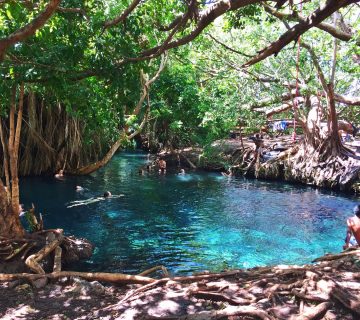Ngorongoro Conservation Area is one of Africa’s most important wildlife areas and a bold experiment in multiple land use located in the northern part of Tanzania.
The Ngorongoro Conservation Area spans vast expanses of highland plains, savanna woodlands and forests, from the plains of the Serengeti National Park in the north-west, to the eastern arm of the Great Rift Valley.
At its core is the world famous Ngorongoro Crater a giant caldera in which the dramas of life on the African plains are played out each day by a diverse assemblage of large mammals, wildebeest, zebra, lion and rhino.
Without question Ngorongoro is the world’s largest intact volcanic caldera and home to the highest density of big game in Africa, including all the big five and plenty of predators. Ngorongoro is justifiably one of the continent’s most famous safari destinations. Wildlife
Undoubtedly the best place in Africa to see the Big Five, and photo opportunities are superb. The mineral-rich floor of the crater is covered in nutritious grasses, attracting great herds of wildebeest, zebra, buffalo and Thomson’s and Grant’s gazelle that can even be seen from the crater rim, swarming across the landscape in great columns.
Below is our list of top sightings in and around the Ngorongoro Crater:
- The Big Five
- Leopard
- Golden jackal
- Spotted hyena
- Thomson’s and Grant’s gazelle
- Wildebeest
- Bat-eared fox
Activities
- Spectacular game-dense at the iconic Ngorongoro Crater
- Striking scenery and exceptional wildlife viewing
- A variety of activities including Olmoti climb and hiking Empakaai Crater
- Spend time with the locals and learn Maasai cultural experiences
- Explore the magnificent Ngorongoro Crater
- Explore the Crater Highlands area
- Bush breakfasts or lunches & hot crater lunches
- Wildlife photography
- Birding
When to go
Since the wildlife mainly stays in the crater all year round, there is really no good or bad time to visit. However given that the crater floor does get busy with vehicles, it can be more pleasant to visit during dry season June to October
Weather
- Dry Season: June to October
- Short rains: October to December
- Migration & Calving / Long Rains: February to April
WHY VISIT
- The world’s only intact caldera
- Ngorongoro Crater is a UNESCO world heritage site
- Wildlife haven, with a very high game concentration on the Crater floor
- Breathtaking views
- Fresh springs and large soda lake within the Crater
- Maasai herdsmen graze their cattle side by side with predators and prey
- The Lerai Forest is one of the best places in Africa for leopard sightings
Location
Located 180 km west of Arusha in the Crater Highlands area of Tanzania within the Great Rift Valley. Covers an area of over 8,292 sq km.










